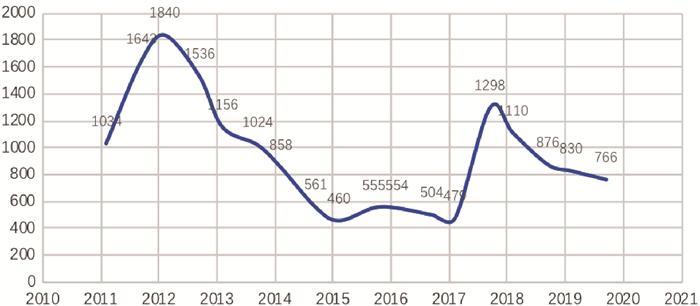On the Developing Deviation and Classified Correction of Sharing Platform
-
摘要: 作为共享经济的运行枢纽, 各共享平台自身定位的不同决定了共享经济经营模式的差异。以“滴滴”“爱彼迎”“ofo小黄车”“Go Fun出行”的用户协议为分析样本, 将共享平台区分为互利型共享与经营型共享。共享经济具有天然的拜物教性质, 令共享平台从原本应有的创新、创业导向偏移至逐利、套利导向。为矫治这一偏差, 既有的定制式方案、立法式方案、试验式方案、双轨制方案、市场式方案等均难以兼顾有效性、可行性、经济性与灵活性, 且不能区分不同的共享平台适用与之相匹配的方案。为兼顾共享经济产业发展需求与利益相关者合法利益, 互利型共享平台可考虑对其适用基于数据协议的平台赋能式规制方案, 经营型共享平台可考虑对其适用基于BOT协议的两权分离式规制方案。Abstract: As the operation hub of the sharing economy, the different positioning of each sharing platform determines the difference of their operation modes. Based on the user agreements of "Di Di", "Airbnb", "ofo"and"GoFun", the sharing platform can be classified into Mutual-Benefit Sharing Platform and Managing-Only Sharing Platform. Sharing economy is featured with fetishism, which has deviated the sharing platform from innovation-oriented and entrepreneurship-oriented direction to profit-seeking and arbitrage-seeking direction. To correct this deviation, the existed customized scheme, legislation scheme, experimental scheme, dual-track scheme, and marketization scheme can hardly satisfy criterion of effectiveness, feasibility, economy and flexibility simultaneously, let alone applying different schemes to different sharing platform.In order to take into account the development needs of the sharing economy industry as well as the legitimate interests of stakeholders, it is advisable to apply the platform-enabling scheme, which is based on data protocol, to Mutual-Benefit Sharing Platform, and it is advisable to apply the separation of two rights scheme, which is derived upon BOT agreement, to Managing-Only Sharing Platform.
-
Key words:
- sharing platform /
- sharing economy /
- mutually beneficial sharing /
- operating sharing /
- developing deviation /
- correction /
- sharing development /
- Didi /
- ofo
-
图 1 “共享”热词网民搜索走势图(2011.1—2019.7)
注: 数据来源于百度指数,图 2同。
表 1 互利型共享平台与经营型共享平台的特点对比
平台类型 互利型共享平台 经营型共享平台 平台定位 信息平台 资源平台 资源归属 服务提供者 平台所有 租金收取 服务提供者 平台收取 服务费收取 平台 — 安全保障 侧重服务提供者 侧重服务接受者 保证金收取 — 平台收取 监督惩戒权 平台享有 平台享有 评价系统 平台建设 平台建设 典型例子 滴滴、爱彼迎 ofo、GoFun 表 2 典型共享平台运行特点的对比
案例 平台定位 租金 信息服务费 安全保障 押金 惩戒 所属类型 滴滴 信息平台 服务提供者向服务接受者收 平台向服务提供者及服务接受者收取 关怀宝 — 平台实施 互利型共享 爱彼迎 在线商务平台 服务提供者向服务接受者收 平台向服务提供者及服务接受者收取 服务提供者保障金计划 — 平台实施 互利型共享 ofo 单车线上租赁服务 平台向服务接受者收取 — 平台先行赔付计划 平台收取 平台实施 经营型共享 GoFun 汽车线上租赁服务 平台向服务接受者收取 — 平台赠送分时险 平台收取 平台实施 经营型共享 表 3 代表性共享平台发生偏差的表现
共享平台 回避认定服务提供者的身份 忽视保障服务接受者合法权益 滴滴 通过协议明确合作关系与合作期间来回避雇主责任 在用户规则总则中未明确用户数据搜集的用途、期限、范围 爱彼迎 通过弱化经营活动控制权以回避雇主责任 在服务协议中约定由服务接受者承担住宿环境安全查验义务 ofo — 在服务协议中约定由服务接受者承担单车硬件状况查验义务 GoFun — 在隐私政策中未贯彻个人数据逐项授权原则 表 4 既有规制方案分析
规制方案 有效性 可行性 经济性 灵活性 定制式规制 满足 欠缺 欠缺 欠缺 立法式规制 满足 满足 欠缺 欠缺 试验式规制 满足 欠缺 欠缺 满足 双轨式规制 满足 欠缺 欠缺 满足 市场式规制 欠缺 满足 满足 满足 表 5 用户赋能式方案与市场准入式方案的对比
比较项目 用户赋能式 市场准入式 准入要求 形式审查 实质审查 准入材料 提交基础材料 提交大量材料 准入之后 申请人利用平台进行交易 申请人自主经营收益 交易数据 平台服务总控 等待申请人披露 治理效果 主动治理 被动监管 表 6 分类规制方案特点比较
规制方案 平台赋能式 两权分离式 适用类型 互利型共享平台 经营型共享平台 方案目的 通过数据协议矫治发展偏差 利用BOT模式矫治发展偏差 主要路径 专门机构总控服务双方个人数据 政府统一采购共享资源 平台依据数据协议内容抓取数据 协议期内由平台经营该资源 定期依照数据协议进行影响评估 协议期满进行影响评估 根据评估结果调整平台经营规模 依照评估结果调整平台经营规模 方案优势 避免平台非法利用基础数据 平台无须为了购置资源收取押金 避免平台上报虚假交易数据 用户无须担忧共享资源质量低劣 -
[1] DIANA CAO. Regulation through deregulation: sharing economy companies gaining legitimacy by circumventing traditional frameworks[J]. Hastings law journal, 2017, 68(5): 1085. http://repository.uchastings.edu/hastings_law_journal/vol68/iss5/3 [2] MICHAEL WIDENER. Shared spatial regulation in sharing-economy districts[J]. Seton hall law review, 2015, 46(1): 111-112. http://works.bepress.com/mnwidener/22/ [3] HANNAH POSEN. Ridesharing in the sharing economy: should regulators impose uber regulations on uber[J]. Iowa law review, 2015, 101(1): 416. http://www.researchgate.net/publication/287819178_Ridesharing_in_the_Sharing_Economy_Should_Regulators_Impose_Uber_Regulations_on_Uber [4] 刘晋炜. 新时代我国共享发展制度体系构建的三重逻辑[J]. 贵州社会科学, 2018(3): 117-120. https://www.cnki.com.cn/Article/CJFDTOTAL-GZSK201803016.htm [5] MEAGHAN MURPHY. Cities as the original sharing platform: regulation of the new sharing economy[J]. Journal of business & technology law, 2016, 12(1): 128, 130-131. http://digitalcommons.law.umaryland.edu/jbtl/vol12/iss1/7 [6] JANELLE ORSI. Practicing law in the sharing economy: helping people build cooperatives social enterprise and local sustainable economies[M]. New York: American Bar Association, 2012: 262. [7] EUROPEAN PARLIAMENT. The cost of Non-Europe in the sharing economy: economic, social and legal challenges and opportunities[EB/OL](2016-01-01)[2019-08-01]. www.europarl.europa.eu/thinktank. [8] K FRENKEN, T MEELEN, M ARETS. Smarter regulation for the sharing economy[R]. The Guardian, 2015, May: 20. [9] BENJAMIN EDELMAN, DAMIEN GERADIN. Efficiencies & regulatory shortcuts: how should we regulate companies like Airbnb and Uber?[J]. Stanford technology law review, 2016, 19(2): 293. [10] ABBEY STEMLER. Betwixt and between: regulating the shared economy[J]. Fordham urban law journal, 2016, 43(1): 31-58. http://papers.ssrn.com/abstract=2535656 [11] 卡尔·马克思. 资本论[M]. 朱登, 译. 北京: 北京联合出版公司, 2013: 30. [12] SHELLY KREICZER-LEVY. Consumption property in the sharing economy[J]. Pepperdine law review, 2015, 43(1): 62-63. http://papers.ssrn.com/abstract=2639552 [13] STEPHEN MILLER. First principles for regulating the sharing economy[J]. Harvard journal on legislation, 2016, 53(1): 161-162. http://papers.ssrn.com/sol3/papers.cfm?abstract_id=2568016 [14] JORDAN BARRY, PAUL CARON. Tax regulation, transportation innovation, and the sharing economy[J]. University of chicago law review dialogue, 2016, 82: 71-75. http://papers.ssrn.com/sol3/papers.cfm?abstract_id=2538947 [15] DEEAPA DAS ACEVEDO. Unbundling freedom in the sharing economy[J]. Southern california law review, 2018, 91(5): 795. [16] EREZ ALONI. Pluralizing the sharing economy[J]. Washington law review, 2016, 91(4): 1419. http://papers.ssrn.com/abstract=2757262 [17] DANIEL MCDONALD. Reputation will teach the sharing economy to share[J]. University of florida journal of law and public policy, 2016, 27(2): 229-232. http://papers.ssrn.com/sol3/papers.cfm?abstract_id=2732269 [18] BRYAN SCHWARTZ, ELLIE EINARSON. The disruptive force of the sharing economy[J]. Asper review of international business and trade law, 2018, 18(1): 245. http://www.zhangqiaokeyan.com/academic-journal-foreign_other_thesis/0204112571153.html [19] GABRIEL DOMENECH-PASCUAL. Sharing economy and regulatory strategies towards legal change[J]. European journal of risk regulation, 2016, 7(4): 722. http://journals.cambridge.org/abstract_S1867299X0001014X [20] RONALD GILSON, HENRY HANSMANN, MARIANA PARGENDLER, Regulatory dualism as a development strategy: corporate reform in Brazil, the United States and the European Union[J]. Stanford law review, 2011, 63(3): 479. [21] BRYAN WILSON, SAL CALI. Smarter cities, smarter regulations: a case for the algorithmic regulation of platform-based sharing economy firms[J]. UMKC law review, 2017, 85(4): 856. [22] WALTER MANER. Is computer ethics unique?[J]. Science and engineering ethics, 1996, 2(2): 137-141. [23] RASHMI DYAL-CHAND. Regulating sharing: the sharing economy as an alternative capitalist system[J]. Tulane law review, 2015, 90(2): 306-307. http://papers.ssrn.com/sol3/papers.cfm?abstract_id=2743959 [24] JEREMY RIFKIN. The age of access: the new culture of hypercapitalism where all of life is a paid-for experience[M]. New York: Putnam Publishing Group, 2000: 5-6. -





 下载:
下载:



